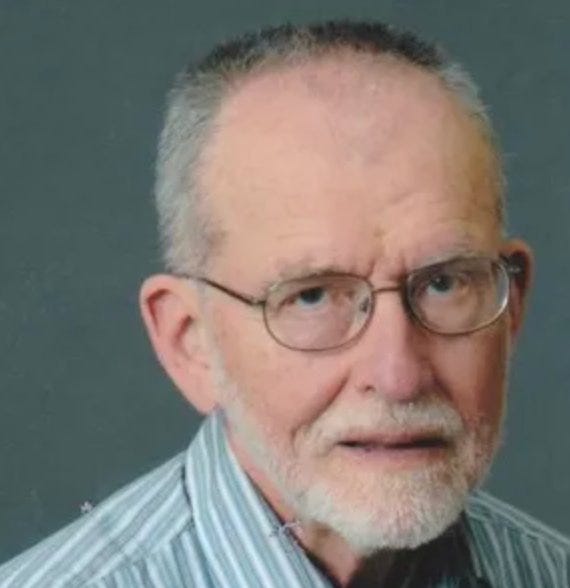Paul deLespinasse: Why should we think about politics?
Any method of learning to think and decide more wisely will be in your interest.

My weekly columns in a few Michigan and Oregon newspapers in the mid-1970s appeared under the slogan “thinking about politics.” Time pressures forced me to discontinue these columns. But then I used “Thinking About Politics” as the title of my college textbook that came out in 1981.
I have continued to write under this slogan since I resumed writing weekly commentaries seven years ago. But why should the average person be able to think clearly about politics? This is actually a difficult question to answer.
Sentinel Leach is a reader-supported publication. To receive new posts and support my work, consider becoming a free or paid subscriber.

All human beings have limited time to think about anything, since we have many other tasks. After being retired from teaching for a quarter century, I wonder how I ever found time to do any work before that!
Even when we do have time to think, we have many other things besides politics and public policy that we need to think about. For many people, the list includes things like:
What profession to prepare for, whether to buy a car and which one, whether to have children, where to live, what job to accept, or whether to undergo dangerous medical treatment or to live with an unpleasant but potentially correctable health problem.
The more carefully we think about personal issues, the better we will live, and what we decide will strongly influence our future orbit.
If we spend some time trying to think about politics and public policy, it may allow us to vote more intelligently. But voters do not and indeed cannot make day-to-day government decisions. And as members of the electorate, we only exercise power in general terms and over the long haul.
Worse, each voter wields only a fraction of the sovereign power, one vote out of hundreds, thousands, or at the national level, millions.
It would appear that time spent making good decisions at the personal level will pay better personal dividends than equal time spent thinking about politics.
However if most people devoted no time to thinking about politics, we'd all be worse off. It would leave the public arena to fanatics and political racketeers. So spending some time thinking about politics is probably in our own interest as well as our duty as citizens.
And there may be times when public issues intrude themselves into your private affairs. Somebody may try to build a freeway through your backyard. Somebody may try to draft your daughter (or you) to fight a war in Antarctica. Somebody may try to destroy your business with discriminatory legislation.
We also need to remember that close elections are common in the United States. Quite often, for example, the presidency would have gone to the other major candidate if only a few voters had voted differently. So like it or not, we do wield political power.
We should also remember that our personal decisions can benefit from any general increase in our ability to think clearly. By learning to think about politics, which includes making “big” decisions on behalf of large numbers of people, perhaps we can improve our ability to make “small” personal decisions.
Sentinel Leach is a reader-supported publication. To receive new posts and support my work, consider becoming a free or paid subscriber.
Politics is often dramatic, and studying it may uncover principles equally valid, but less obvious, in a purely personal or private context.
When your own affairs are concerned, there is no such thing as a “small” decision. Any method of learning to think and decide more wisely will be in your interest.
Studying politics may be one of the best available methods.
— Paul F. deLespinasse is professor emeritus of political science and computer science at Adrian College. He can be reached at pdeles@proaxis.com.




